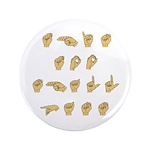It used to be that you would do a search on a relevant subject and get blog posts, forums posts, and maybe a couple of relevant companies offering the product or service. (And if you wanted more information on said company you could give them a call and actually talk to a real person about said service) You could even trust amazon and yelp reviews. Now searches have been completely taken over by Forbes top 10 lists, random affiliate link click through aggregators that copy and paste each others work, review factories that will kill your competitors and boost your product stars, ect… It seems like the internet has gotten soooo much harder to use, just because you have to wade through all the bullshit. It’s no wonder people switch to reddit and lemmy style sites, in a way it mirrors a little what kind of information you used to be able to garner from the internet in it’s early days. What do people do these days to find genuine information about products or services?


Back in the day, Wikipedia was so neutral that they had people arguing how to write articles from a non-human POV. Yes, certain articles get political, but that is when the talk page arguments, counter-arguments, and linked ARBICOM evidence pages give you a good lesson on what people think are fact and opinion. I haven’t been a editor for a while, is wikipedia not a hotbed of nerds who have to be in alignment with the facts regardless of what current political discourse says is right nowadays?
Again with this. Wikipedia can’t be neutral. Nothing can be. Neutral doesn’t exist.
There is absolutely no way to be “politically unbiased” when talking about things. Being “neutral” just means being in favor of the status quo, which is not neutral at all. There is no third position, you either oppose or support the way things work right now. Bias is completely inescapable.
If you want to get an “unbiased” view of something, the only real thing you can do is to read many sources biased against both outlooks and compare and contrast. What you end up with will still be biased though, just by virtue of what you select to care about and not.
People who claim to be neutral and unbiased only say it because they think it makes them look more credible, or they have deluded themselves to be able to think they’re somehow more rational than everyone else. There is no way to not be biased as a human being.
A good chunk of Wikipedia content is minor sports teams, players, towns with sub-1000 population, and minor highways that connect them. I’m not sure how you can be “politically biased” when describing “Alberta Highway 564 which runs mostly west-east from the east Calgary boundary”.
Alignment with the facts? Depends. https://quillette.com/2022/07/18/cognitive-distortions/
If you feel something doesn’t align with facts, there is a whole multi-level system. Check the talk page to see if the page isn’t part of some sanctioned case. Make a referenced change. If it is revered, bring it up on the talk page. Seek consensus. If there is a coordinated group of people reverting you, then bring your case to Request for Comment (RfC). If you are following the rules and being civil, others will come to your aid through the RfC process. If it breaks out into an edit war, the thing will go to the Arbicom and those that were civil will “win”, e.g. the people not being civil will be banned.
Well that was interesting. Useful to know I cant rely on Wikipedia any more for anything on human intelligence.
With anything controversial like this its best to go direct to the source if possible - the research itself
I mean Wikipedia is not without a shitload of bias. Try searching democracy in China or homelessness in the USSR.
Take the contrast between the pages democracy in China vs democracy in the US. The Chinese page uses shit like oxford and Cambridge to call China an authoritarian one party state. Which: okay, but the framing of this is incredibly negative given the same argument could be for the US. Notably, the US page (redirected from democracy in the US) simply outlines US government structure and function.
The Chinese page condemns the current government of China as being antidemocratic while unironically citing the government that lost the civil war to the Chinese communist party instituted martial law for 38 years in Taiwan. Yes, the current Chinese government does not allow other parties to run candidates (as far as I understand it) but given what the people experienced before this government, its not that shocking that the vast majority of the population believes they live in a democracy.
Long windedly, Wikipedia is also super biased and corrupt.
One of the longest running ARBICOM cases is about Tawain. The first one ended, and then another one pops up literally on naming conventions of geography in Tawain. It is like a unmovable obstacle vs. an unmovable obstacle with endless chineese editors vs. endless wikipedia burocracy.
I would hate to see what the mandarin version of Wikipedia has to put up with.